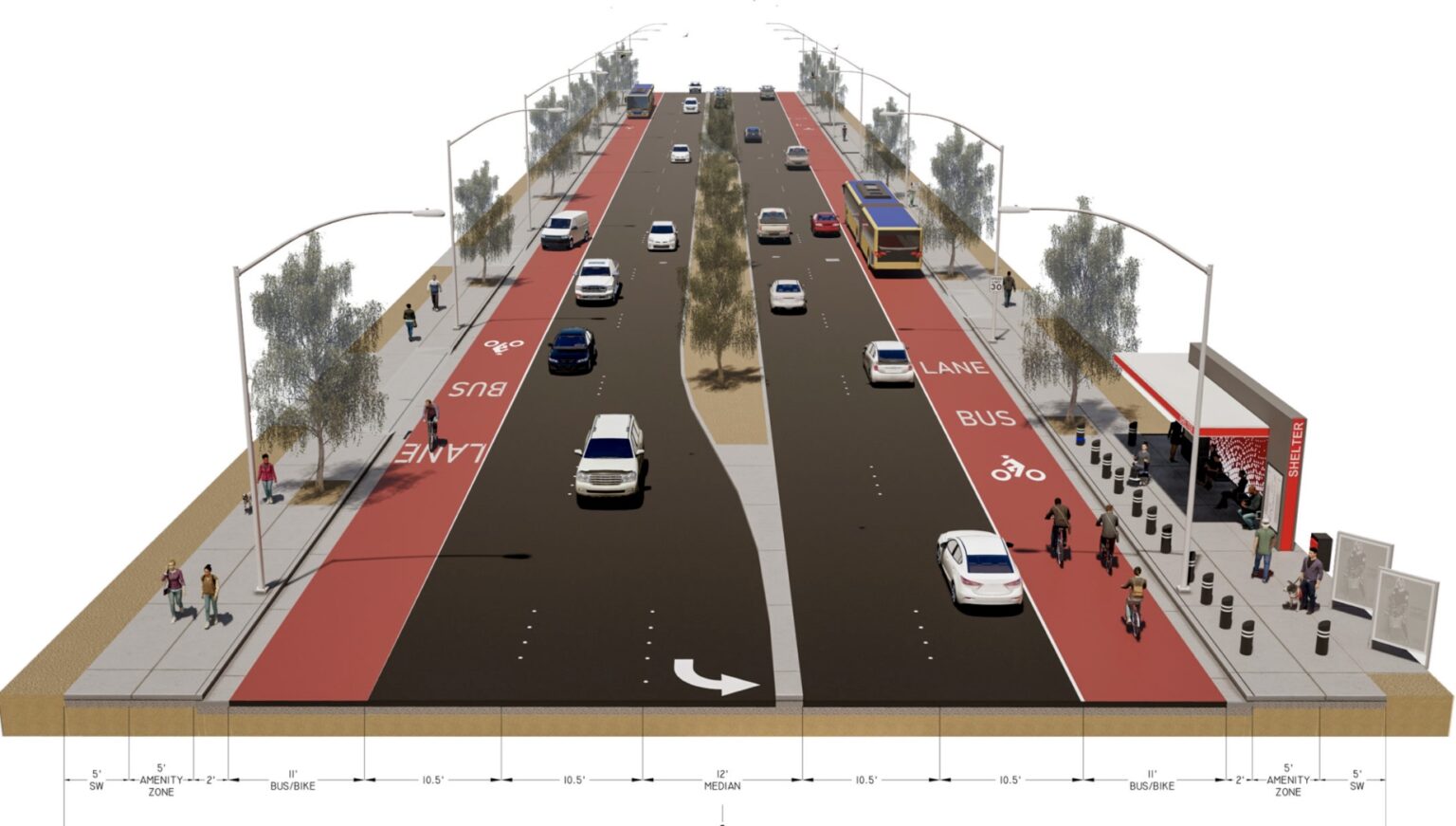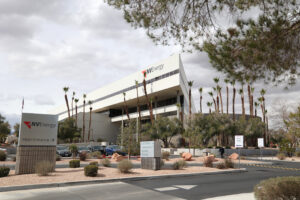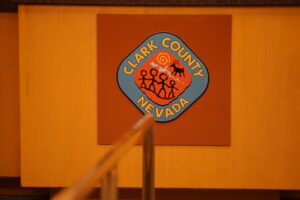Las Vegas was awarded nearly $150 million in federal funding for a transportation project designed to create more efficient, frequent, and speedier bus transit between the Harry Reid International Airport and the Las Vegas Medical District in the north.
The 13-mile Maryland Parkway Bus Rapid Transit project represents the largest single transit investment the Regional Transportation Commission of Southern Nevada has ever received from the U.S. Department of Transportation, and will provide nearly half of the $305 million needed for the project.
Construction of the project will start this year, before being completed by 2026, according to the RTC.
Democratic U.S. Senators Catherine Cortez Masto and Jacky Rosen announced the funding Friday, which was secured through the 2022 Bipartisan Infrastructure Law.
“This grant will help RTC purchase cleaner buses, be more efficient, shorten wait times, and improve road safety for transit riders, cyclists, and pedestrians alike. I will keep working to strengthen our economy, revitalize our infrastructure, and keep Nevadans safe,” Cortez Masto said in a statement.
Maryland Parkway is a vital corridor for the Las Vegas Valley and is home to 90,000 residents. The route (Bus Route 109) generates the eighth highest ridership of all existing bus routes in Southern Nevada, carrying about 9,000 transit riders daily. Additionally, about 32% of all households on the corridor don’t have access to a personal vehicle, according to the RTC.

The project will provide high-capacity transit service between major urban centers, including the Las Vegas Medical District, Downtown Las Vegas, Sunrise Hospital, Boulevard Mall, the University of Nevada at Las Vegas, and the Harry Reid International Airport.
Nevada transit officials told the federal government they hope to operate the route 24-hours a day, seven days a week, with buses every 12 minutes during the day Monday through Saturday and every 15 minutes during the day on Sundays. At night, buses would operate every 15 to 30 minutes.
Pedestrian safety on the corridor – which sees 35,000 vehicles daily – will also get a major boost. Funding for the project will finance 42 enhanced transit shelters, shared bus-bike lanes, widened sidewalks, upgraded pedestrian crossings, and improved lighting on the route.
If all goes as planned, officials say the project will help alleviate traffic congestion, improve air quality, support local land use policies, and encourage new economic vitality along the Maryland Parkway corridor.
“We are incredibly appreciative to our federal delegation in helping us to secure this FTA grant that will help transform Maryland Parkway for the benefit of everyone in the region,” said RTC CEO M.J. Maynard in a statement.
Both Cortez Masto and Rosen highlighted their work in the Senate to pass the Bipartisan Infrastructure Law.
“I’m proud to have helped secure $149 million for the Maryland Parkway transit project to increase the frequency and safety of public transit, purchase new clean energy powered buses, and create good-paying jobs,” Rosen said in a statement.
Nevada’s Democratic House representatives also highlighted their part in helping Congress pass the Bipartisan Infrastructure Law in 2022, which allocated billions of dollars to DOT’s Capital Investment Grants Program.
“The $150 million secured for improvements to the Maryland Parkway transit system will ensure Las Vegas residents have better options while traveling among Harry Reid International Airport, UNLV, and other important areas around the city. Buses, bikes, cars, and pedestrians will all experience safer conditions thanks to wider sidewalks, enhanced transit shelters, improved lighting, and better roadways,” said Rep. Dina Titus, who represents Nevada’s first Congressional District, where the project will be built.
“This is the type of direct investment our community needs to make everyday commutes shorter and safer for working families,” said Nevada’s third Congressional District Rep. Susie Lee.
Our stories may be republished online or in print under Creative Commons license CC BY-NC-ND 4.0. We ask that you edit only for style or to shorten, provide proper attribution and link to our website. AP and Getty images may not be republished. Please see our republishing guidelines for use of any other photos and graphics.




